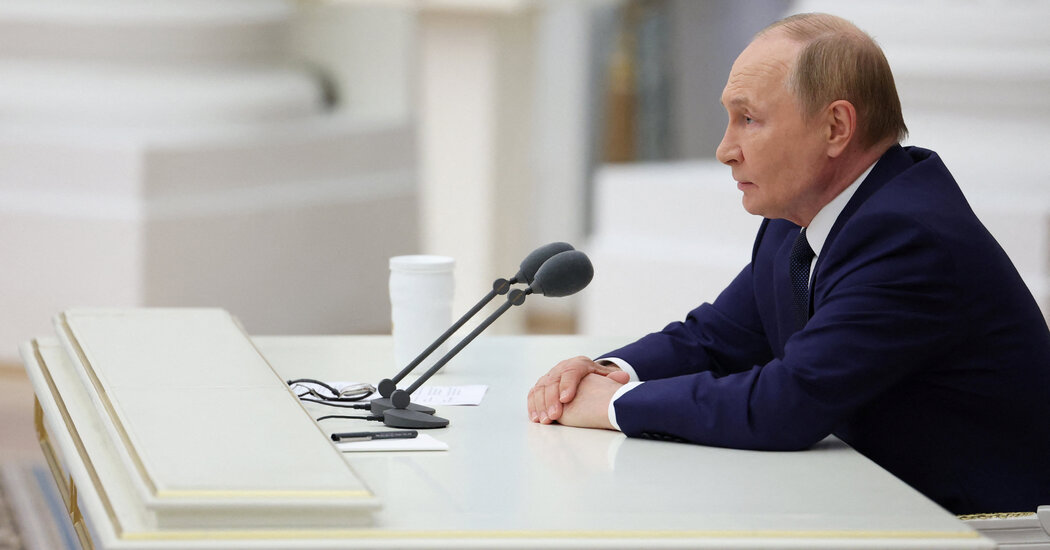Ivan Nechepurenko / New York Times:
Russia Seeks to Add Trade and Arms Control Into Trump-Putin Talks — Over recent months, the Kremlin has been trying to move the diplomatic focus away from Ukraine to bilateral issues, such as trade and strategic stability…
Why it matters
- Russia is attempting to redirect international attention from the ongoing conflict in Ukraine to bilateral trade and arms control issues.
- This shift could alter the dynamics of U.S.-Russia relations and influence global strategic stability.
- A successful dialogue on these fronts may pave the way for future negotiations and cooperation.
In a notable diplomatic maneuver, the Kremlin has been making efforts to redirect the focus of discussions between U.S. President Donald Trump and Russian President Vladimir Putin away from the pressing situation in Ukraine. Instead, Russia is advocating for a dialogue centered on bilateral matters, particularly trade relations and arms control agreements. This recalibration of priorities signals Moscow's desire to engage in negotiations that could yield more favorable outcomes for its economy and security strategy.
Recent months have seen an uptick in Russian officials emphasizing the importance of trade and strategic stability in the context of U.S.-Russia relations. High-ranking diplomats from Russia have been vocal about their intention to explore opportunities that extend beyond the geopolitical tensions stemming from Ukraine. They argue that establishing a robust framework for trade and revisiting arms control treaties could serve as a foundation for stabilizing a relationship that has been fraught with tension.
The Kremlin's strategy appears to be a calculated response to the ongoing sanctions and economic pressures imposed by the West, particularly the United States. By shifting the narrative towards trade, Russia hopes to mitigate some of the adverse effects of these sanctions and foster economic partnerships that could bolster its economy. Furthermore, the emphasis on arms control is seen as a crucial step in ensuring strategic stability in a world characterized by escalating military competition.
Experts note that the Kremlin's approach could potentially yield mixed results. While the call for trade negotiations might resonate with U.S. business interests eager to expand into Russian markets, the broader geopolitical context cannot be ignored. The ongoing conflict in Ukraine remains a significant sticking point, and U.S. officials have indicated that any discussions on trade and arms control will likely be contingent upon progress in resolving the crisis.
In recent statements, Russian officials have articulated a desire to engage in constructive dialogue about arms control, particularly in relation to nuclear weapons. With the expiration of key arms control agreements looming, including the New START treaty, Russia is keen to initiate conversations that address mutual security concerns and prevent an arms race.
Moreover, the Kremlin's push for trade discussions comes at a time when global economic dynamics are shifting. The COVID-19 pandemic has disrupted supply chains and altered trade patterns, prompting nations to reassess their economic strategies. Russia's outreach in this context aims to position itself as a valuable partner for countries looking to diversify their trade relationships.
The potential for U.S.-Russia cooperation on trade and arms control, however, hinges on a complex interplay of domestic politics and international relations. Bipartisan skepticism in Washington towards engaging with Moscow remains a significant barrier. Lawmakers have expressed concerns that any concessions made in trade discussions could undermine efforts to hold Russia accountable for its actions in Ukraine and other regions.
As the Trump administration navigates these discussions, it will be essential to balance national security interests with the potential economic benefits of improved trade relations. The upcoming talks between Trump and Putin could serve as a pivotal moment in shaping the future trajectory of U.S.-Russia relations, with implications not only for the two nations but for global stability as well.
In summary, Russia's initiative to refocus the agenda of the Trump-Putin dialogues from Ukraine to trade and arms control underscores a strategic pivot in its diplomatic approach. As both nations prepare for these discussions, the outcomes will be closely scrutinized by international observers, who are keen to understand how this new emphasis might alter the geopolitical landscape.











